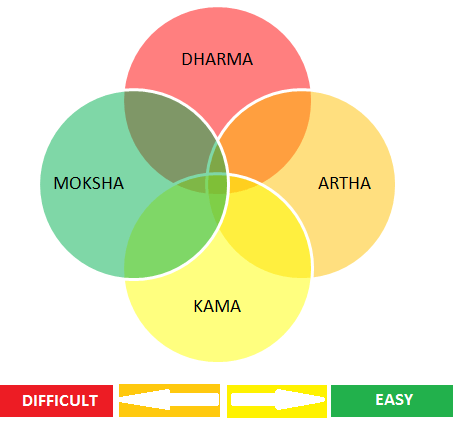Hinduism IS a religion. But to appreciate this, you should understand what “religion” means – Religion is an organized collection of beliefs, cultural systems, and world views that relate humanity to the supernatural, and to spirituality. A lot of people often confuse monotheism with religion. And many others treat “religion” to mean Abrahamic religion. This is not true.
Hinduism is the “oldest living religion”
 It is not possible to ascertain who was the founder of Hinduism. According to the texts, knowledge is believed to be imparted from God to human beings and were carried forward through teacher-disciple tradition.
It is not possible to ascertain who was the founder of Hinduism. According to the texts, knowledge is believed to be imparted from God to human beings and were carried forward through teacher-disciple tradition.
Hinduism is an umbrella term embracing a great diversity of beliefs. One can believe a wide variety of things about God, the universe and the path to liberation and still be considered a Hindu. For eg, one can meet Hindus who eat/don’t eat beef, drink/not drink alcohol – all in the name of religion.
Vedas are considered to be the authoritative texts of Hinduism and lot of customs, rituals, prayer methods, etc are derived from Vedas. Vedas are believed to be compiled during the Iron Age Period by the Indo-Aryan peoples. But many followers of the text Bhagavad Gita don’t believe in these rituals – providing a good example of “No Single Belief System”.
Hinduism as a Way of life

To have a meaningful life, it provides with 4 objectives of human life. One thing to notice is that they beautifully cover all aspects, are flexible and related to everyday things that we do.
1. Dharma, or Righteouness
This means that virtues like honesty, purity, goodwill, harmony, mercy, patience, forbearance and generosity are to be acquired and practiced over time. These are some universal laws.

2. Artha, or livelihood
Artha is objective & virtuous pursuit of wealth for livelihood, obligations and economic prosperity. It is inclusive of political life, diplomacy and material well-being. Note the words objective and virtuous. It indicates wealth earned by Righteousness. And this wealth is to be used not just for one’s needs, but also to serve the society, which is our obligations.

3. Kama, or sensually pleasure
This means desire, wish, passion, love and enjoyment thereof. This forms an integral part of one’s life.

4. Moksha, or Nirvana/Liberation
This is the last goal and involves liberation from the world and cycle of rebirths. This stresses on principles that purifies the inner self – meditation, spiritualism, etc
![reincarnation-jpg[1]](https://i0.wp.com/detechter.com/wp-content/uploads/2016/04/reincarnation-jpg1.jpg?resize=442%2C232&ssl=1)
Basic Principles of Hinduism – The Eternal Links
Though Hindusim has been changed over the years, the basic principles have remained the same since time immemorial. This is because these are laws and prescriptions of “daily morality” – and hence eternal! Some of these are:
The Law of Karma
Karma is any activity that you do and the law says what you sow is what you reap, with no added interest 😛 It tells you to work selflessly in the interest of the society. It tells you not to attach yourself and worry about the results of your actions.

Tolerance and Equality
According to Hinduism, all individuals are equal. Suppose I wrap up the Harry Potter book in a different cover and give you – I am sure you would enjoy reading it as much as the one with the original cover! Similarly our external body is just a cover for the inner-self (atma, or spirit) which is same for all. As the cover is irrelevant, all beings are equal – and hence we should have tolerance and compassion for all.

Ego, Pride and Anger are the worst enemies
Bhagwat Gita always talk about leaving these 3 things. Who was Voldemort’s true enemy? It wasn’t Harry. It was ego, pride and anger. Under these influences, you cannot think objectively which leads to your downfall.
Open Source Religion – modify it to suit your needs without worrying about any license
Dont have a car? No need to visit any temple – pray at home! No access to vegetarian food? Go ahead, have some butter chicken! Hinduism is open to all – people can practice whatever they like, or not practice at all. This explains huge number of Gods, rituals and beliefs 🙂

Source: Quora